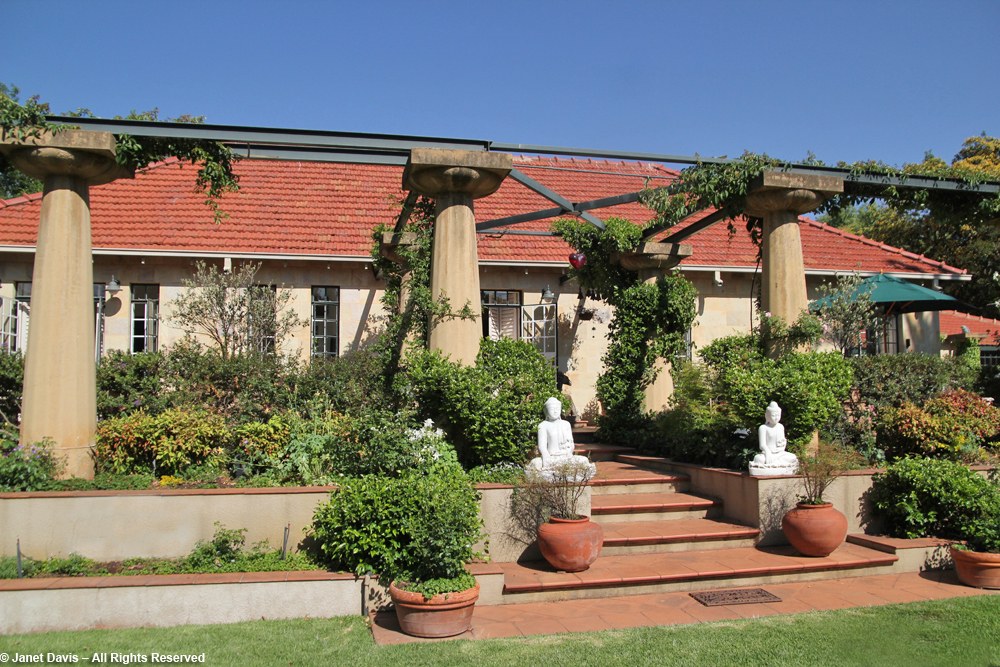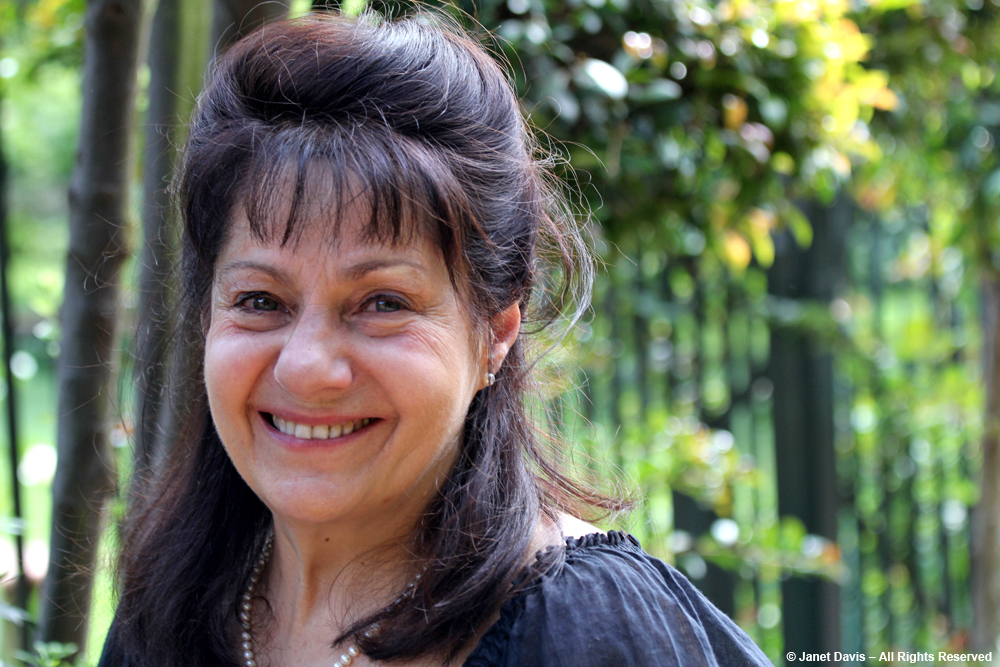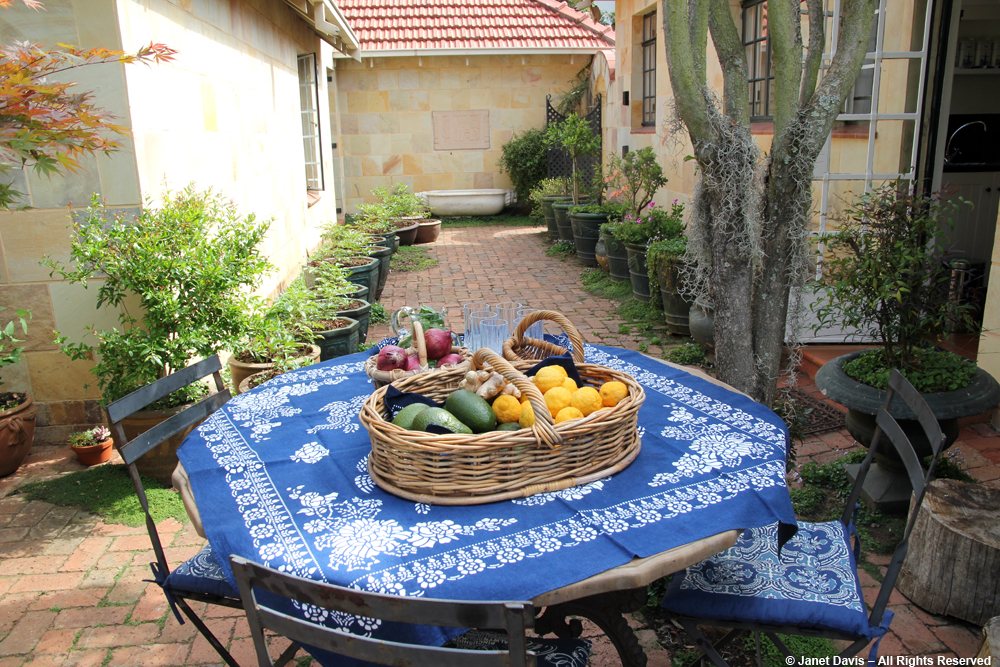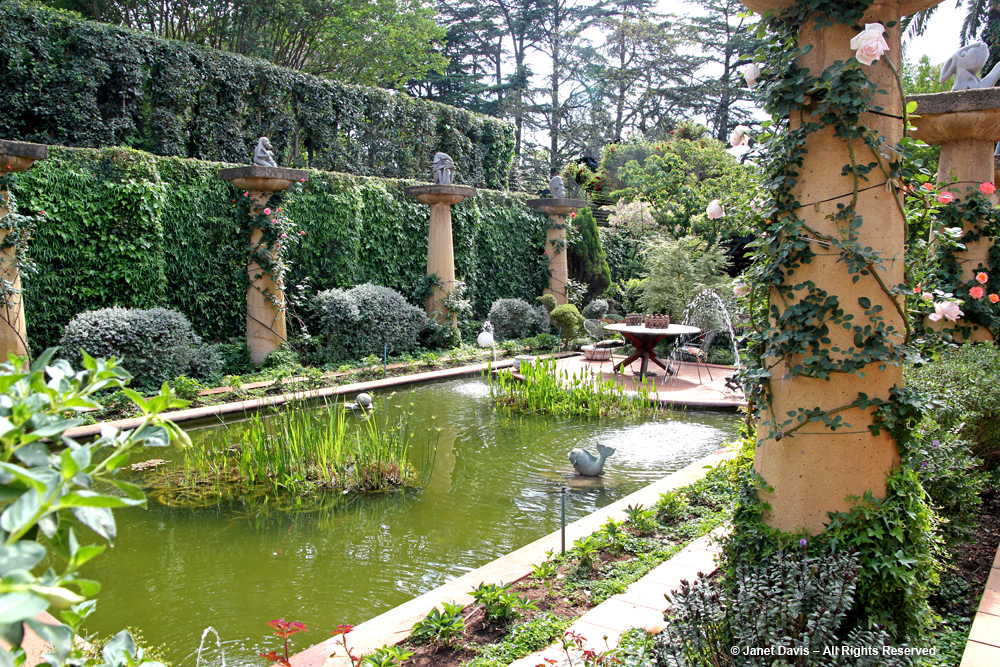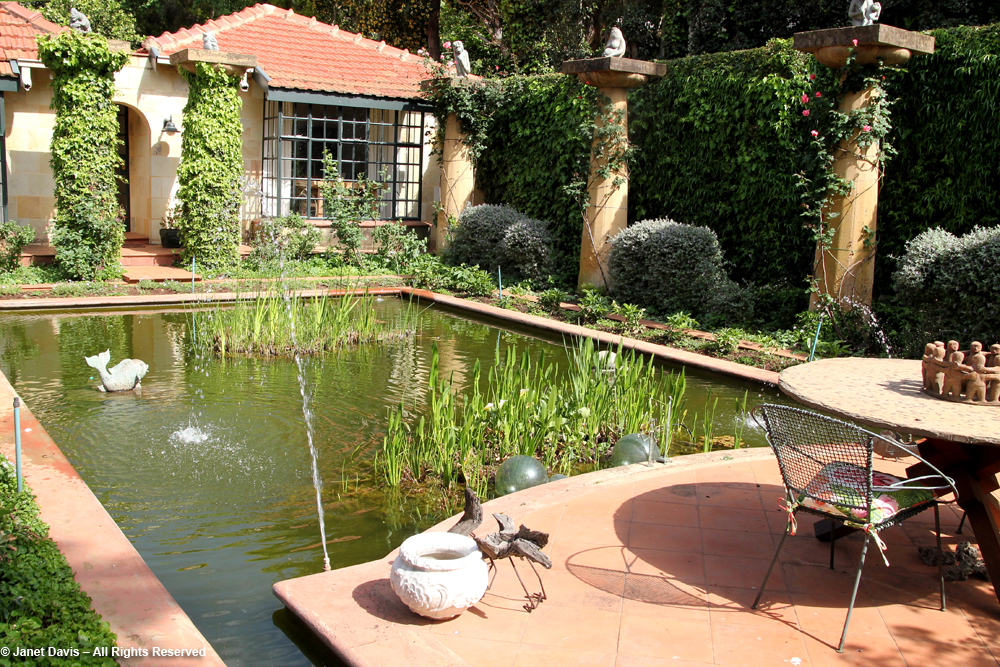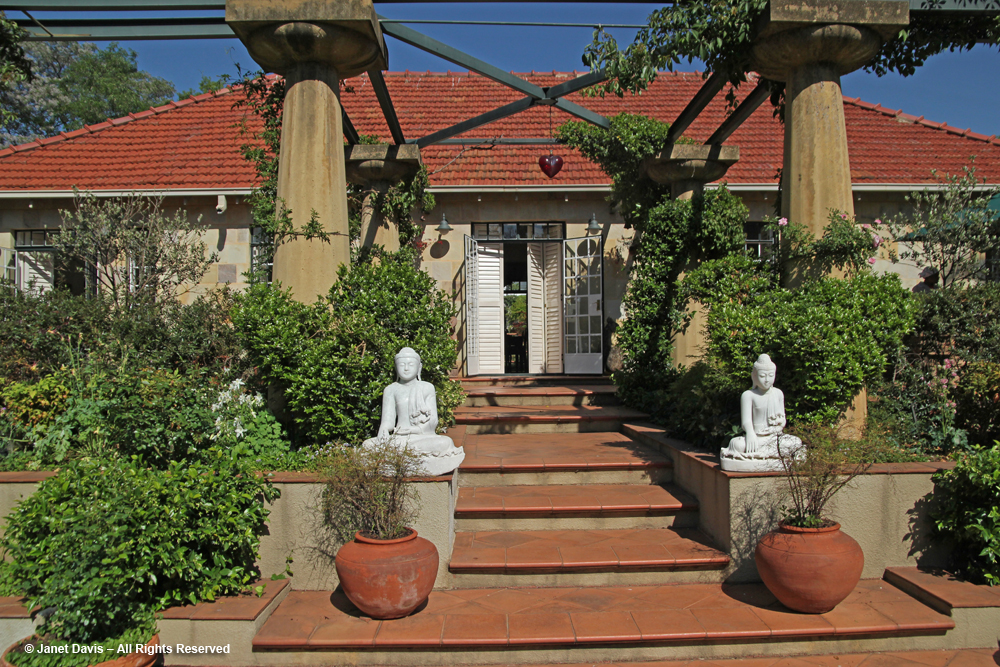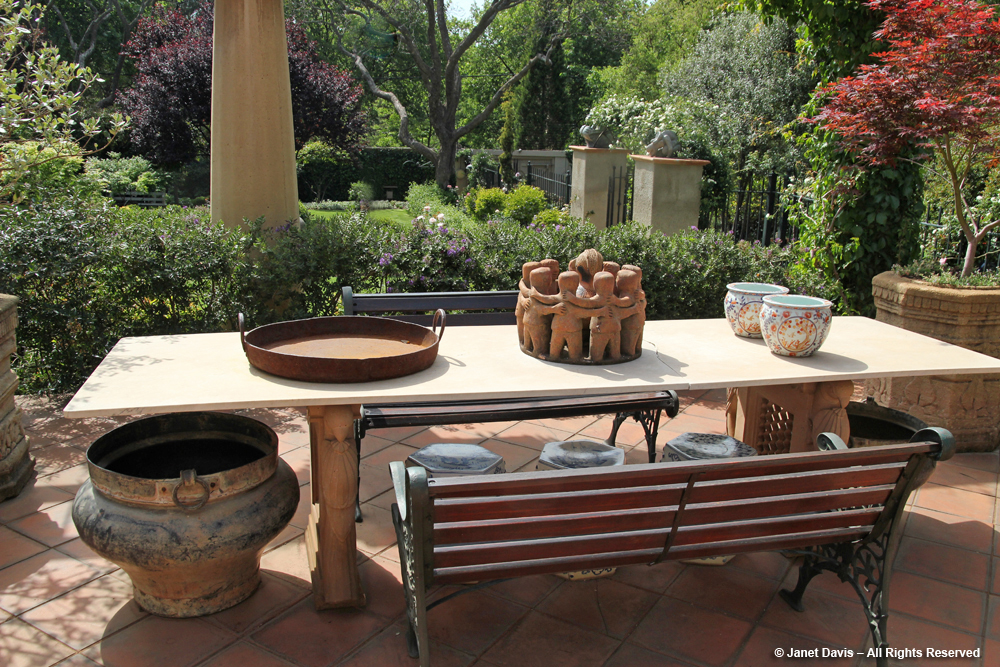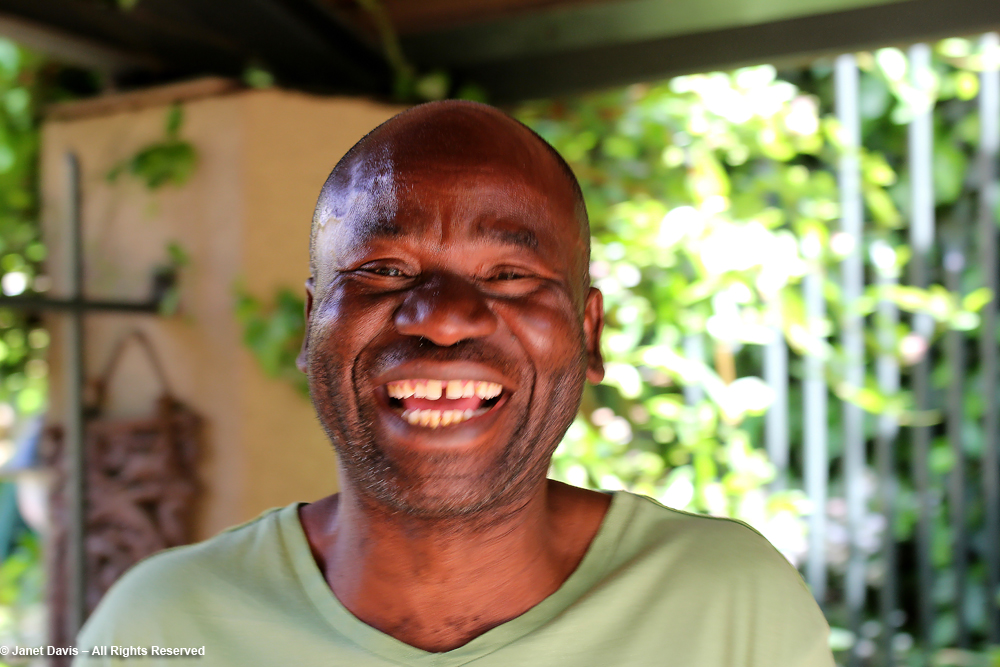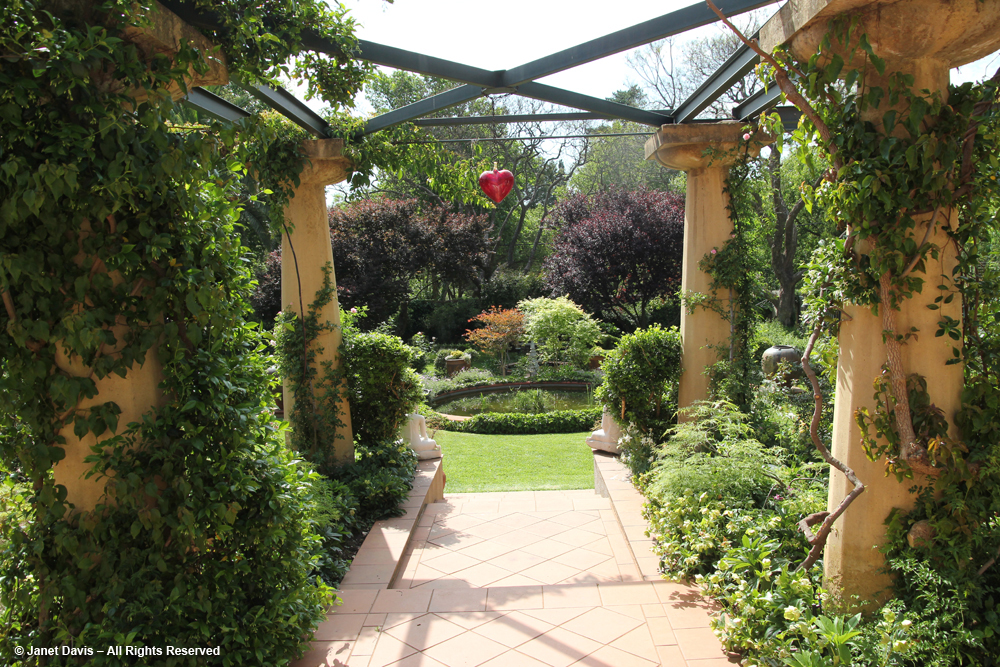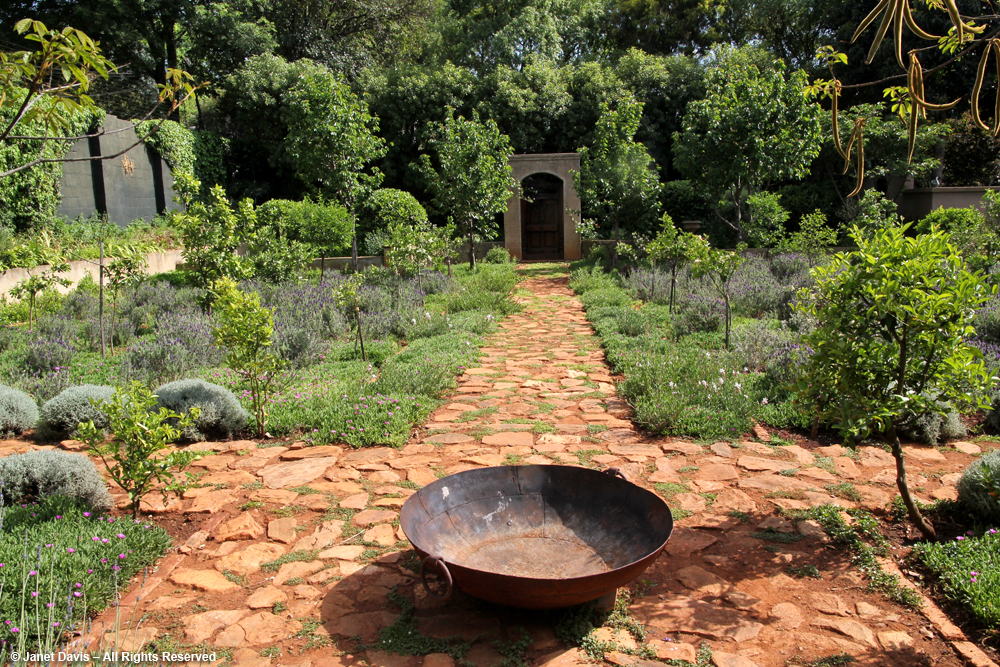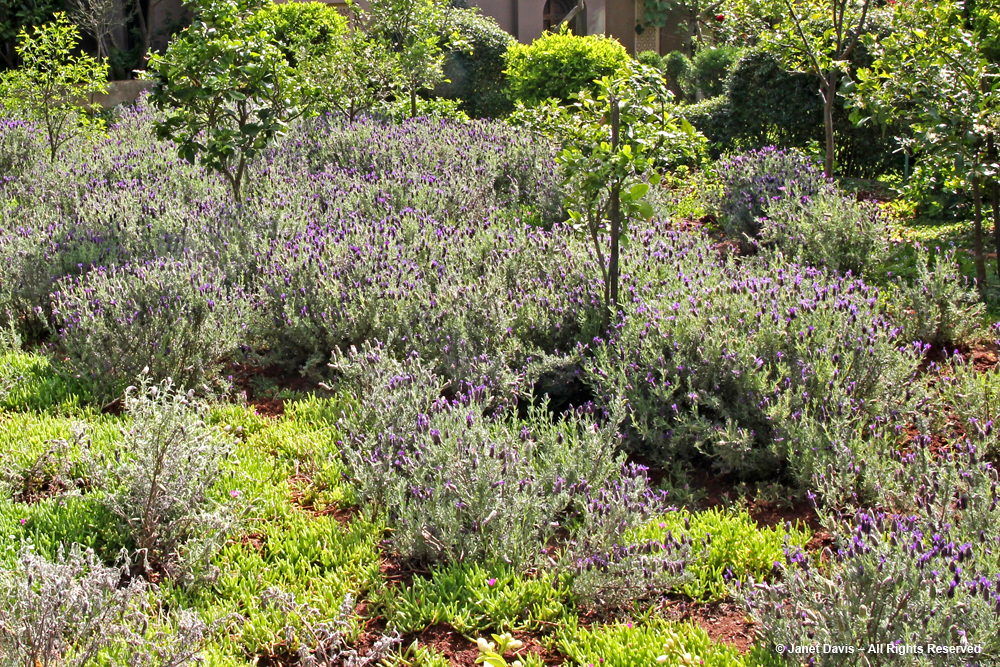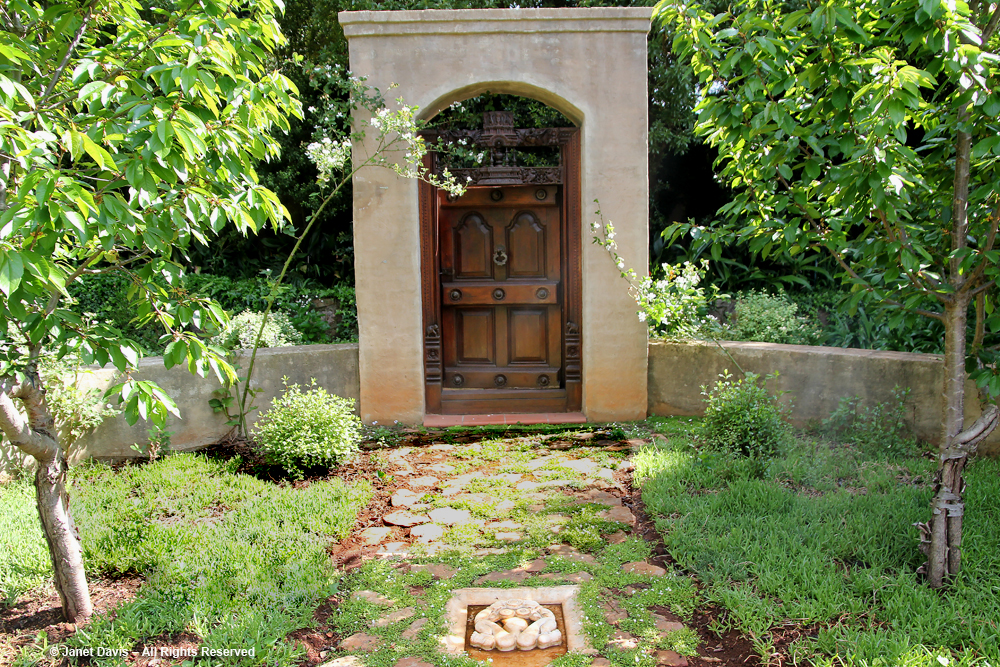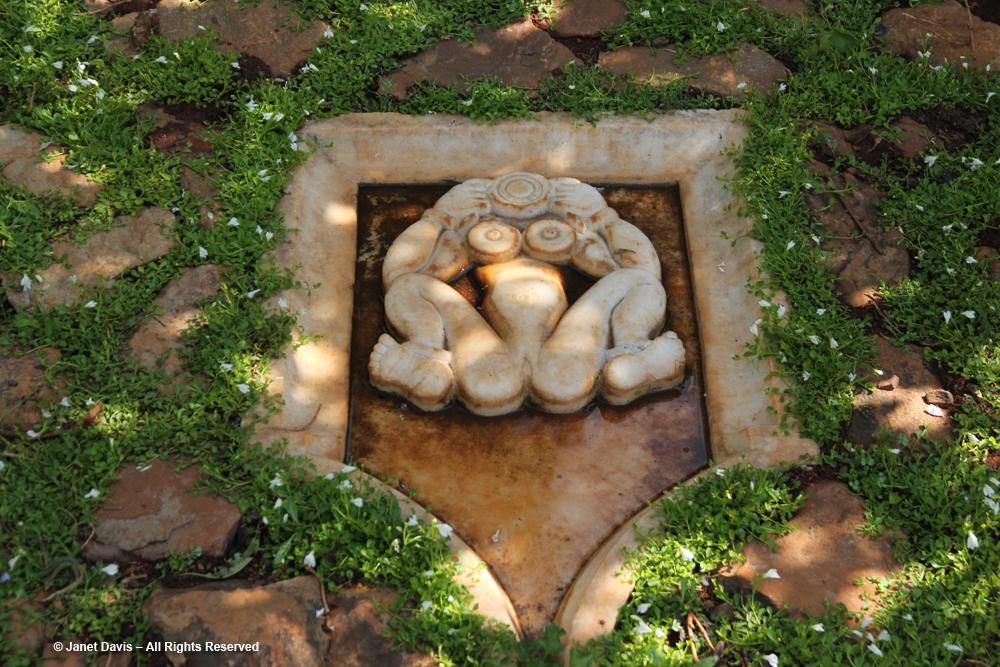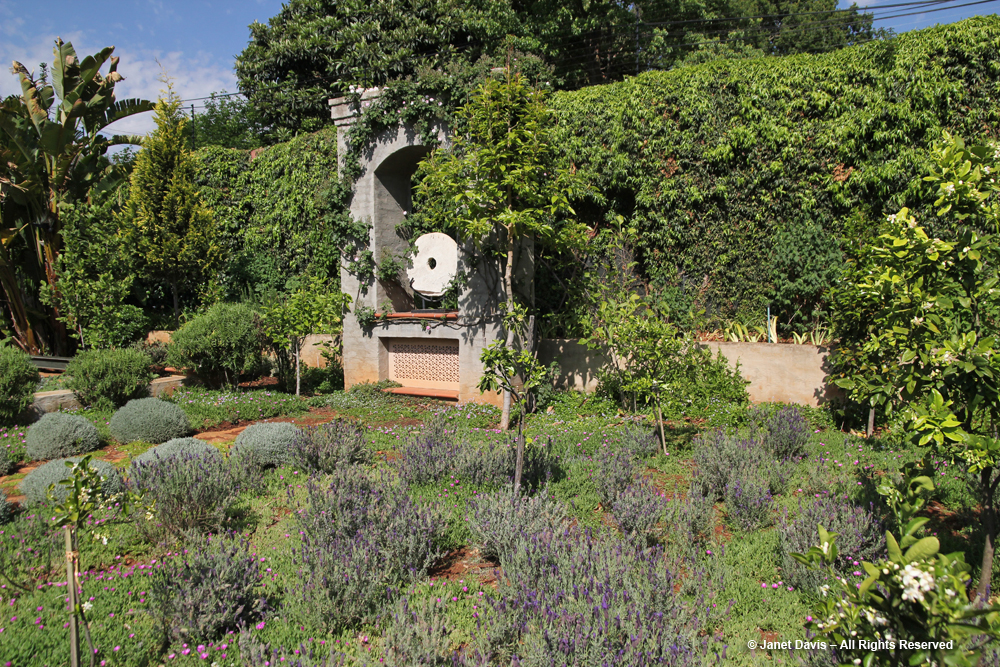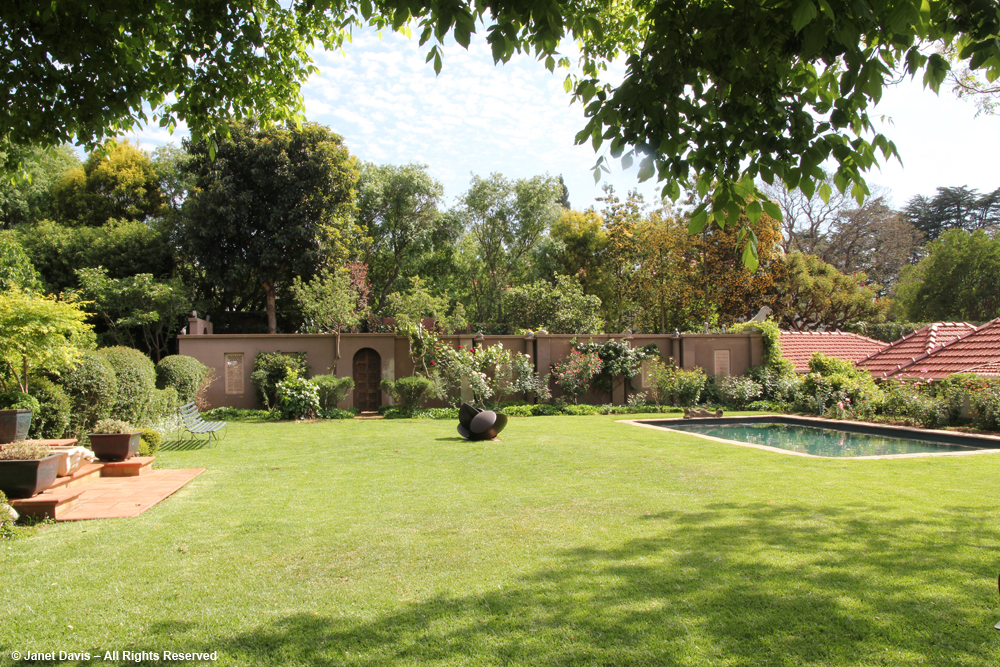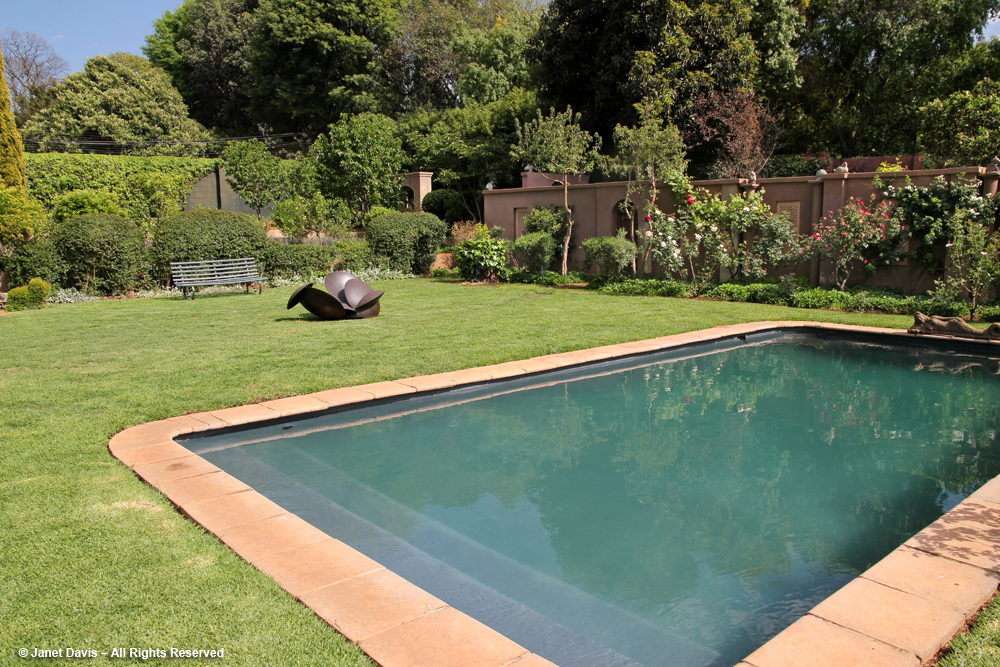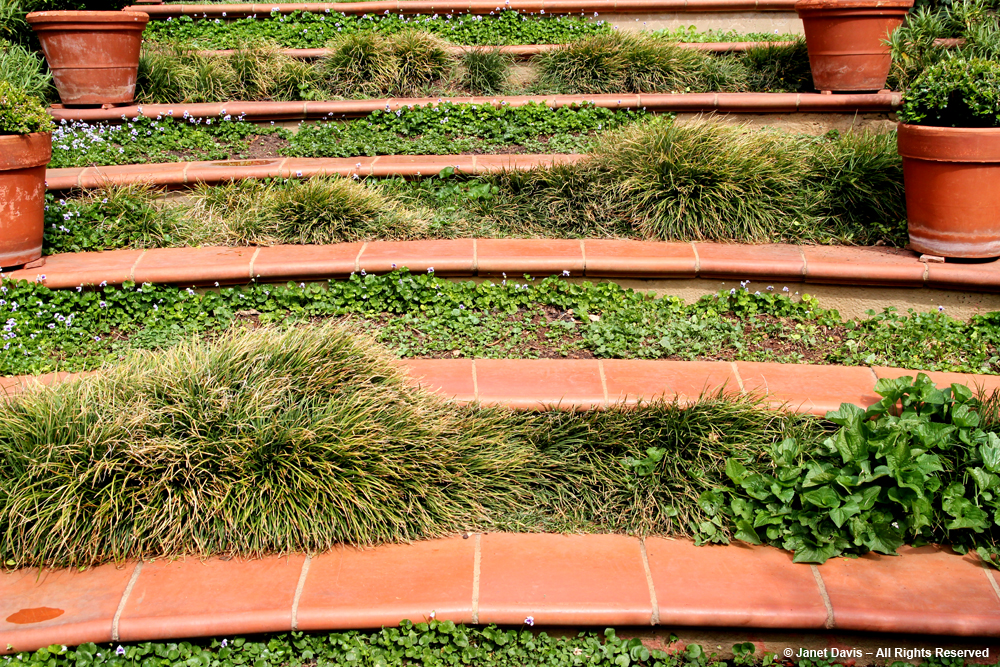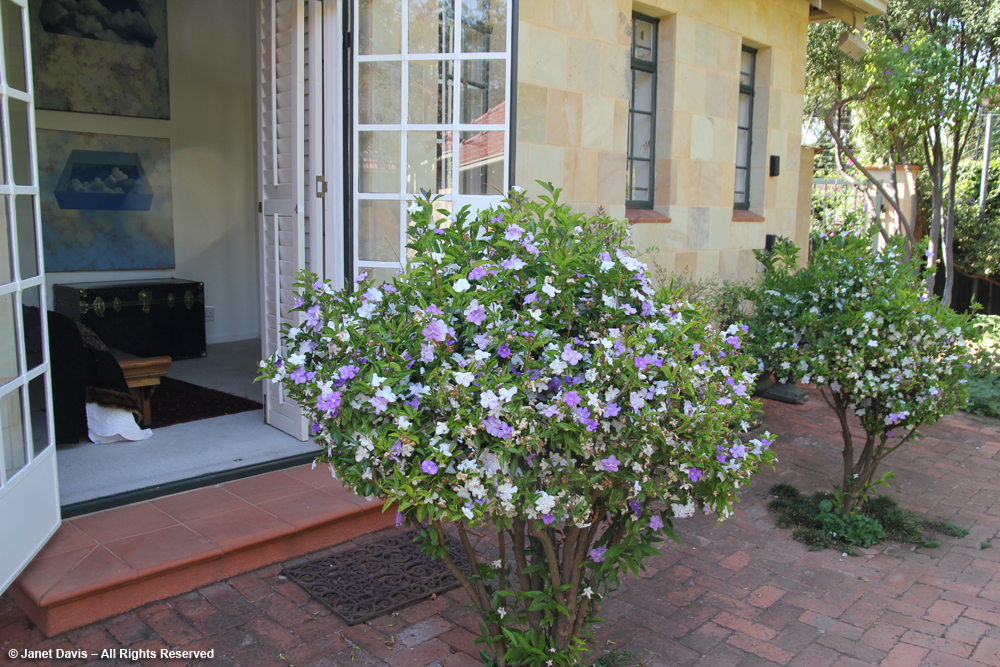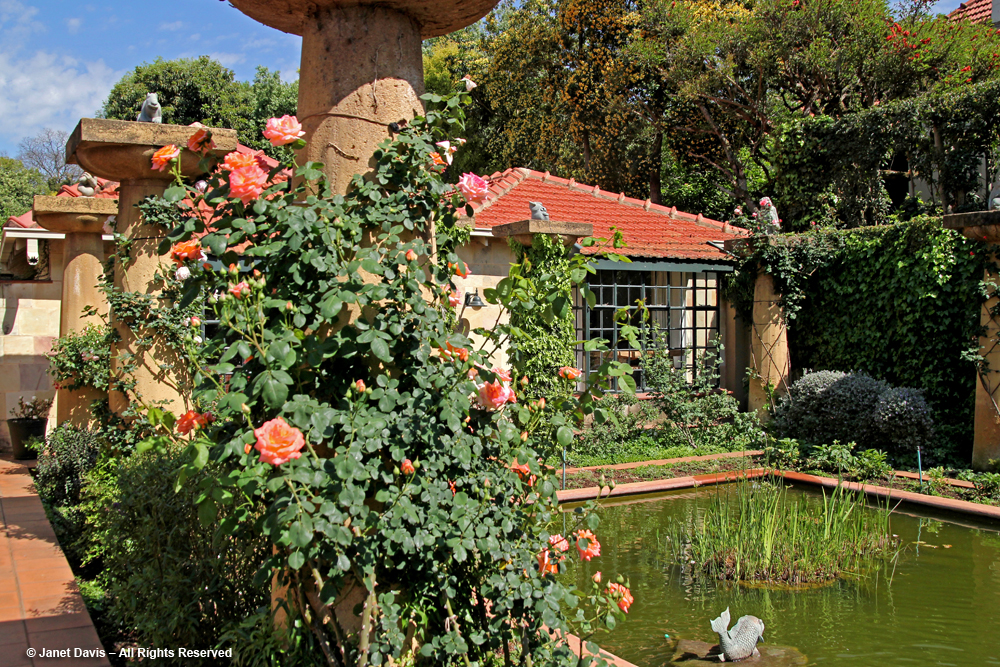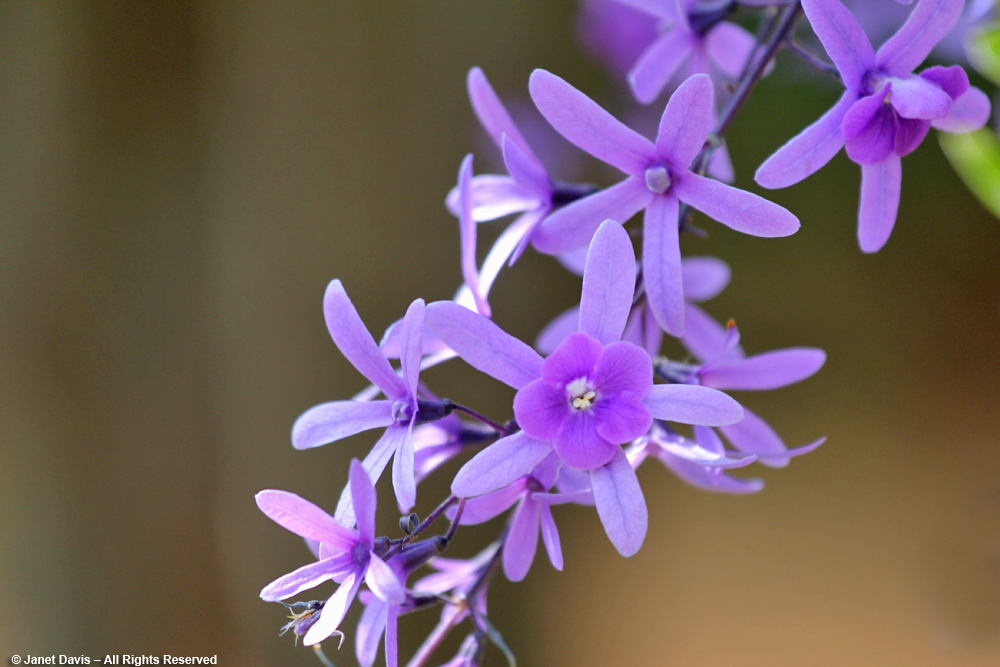Standing in Minky Lidchi’s delightful garden in the Houghton neighbourhood of Johannesburg, South Africa, and gazing at her beautiful home with its terraced beds and intriguing front pergola with its classic columns, it’s difficult to imagine how it must have looked in 1976, when Minky, then a first year Architecture student at Wits University (the University of the Witwatersrand ), acquired the property.
“The house was really an ugly duckling,” she recalls, “and the garden was totally nondescript, except for three jacaranda trees on the eastern side.” The land, which measures 90 metres in length by 46 metres in width, sloped upwards with a 5 metre (16 feet) increase in elevation from front to back. In time, Minky would formalize five broad terraces from the incline on the slope of the site — but when she took possession, the house sat comfortably on what would be the third terrace and a tennis court occupied the fifth terrace at the rear of the property.
After renting the house out for two years, Minky then began to improve the property. “With a very limited budget I did a simple renovation to the small house, creating vistas through and across the site from the public and private spaces inside the house.” A garage and staff building were transformed into a cottage and smaller staff quarters “creating the spaces between the buildings for courtyards and pond areas.” Today, these skilfully-crafted spaces not only separate the buildings but create small journeys – like the kitchen courtyard below– that Minky has made more interesting by filling with potted plants and treasures from her travels, including the marble bath at the far end.
The koi pond, below, is flanked by an ivy-clad wall backed by a tall topiary hedge and even has a little “island” with table and chairs. Atop the pillars are sandstone carvings, some of the many works of art that grace the garden today.
Recalls Minky: “The side pond began as a space to tie the house and cottage together, but both spaces needed a focus, yet privacy. I decided a pond would be ideal as one could view it from both builidings.”
In 1982, she embarked on a second renovation, this time cladding the house’s exterior in sandstone tiles reminiscent of the Westcliffe sandstone used in the architecture of older houses in the area. Her aim was to give it a rectangular box form with a simple, pitched roof “like a child’s drawing” of a house. “Here I started addressing the edges around the house and built the terrace with large columns and stairs and planters in front of the house.” A pair of white marble buddhas from Mandalay in Burma flank the front steps, below.
The front terrace has become a favourite place for Minky to enjoy the sounds and views of the garden. She loves collecting real objects that once had practical uses, such as the gypsy cooking pot on the table. At the centre is a Mexican “circle of friends” sculpture.
Gardening began in earnest then as well, and she drew upon the memories of the wonderful European and English gardens she had visited as a child with her mother, “an eccentric gardener”. She began to plant slowly, feeling her way by trial and error with the help of Lot, below, her long-time “left-hand person” in the garden and on the property.
Once again, the house was rented out, but Minky was now a qualified architect with a practice that allowed her to put more time and resources into the property. She began work on the bottom terrace at the front of the garden, adding the round pond visible from the front door of the house. “The idea in developing the site was to create vistas wherever possible, and I took my cue from the slope and the rectangular shape of the house.”
In 2002, after more than 25 years of renting the house out and being its absentee gardener, Minky finally moved in and began working on the upper terrace nearest the back of the property. “I took away the tennis court and created the grapefruit and lemon orchard, which now has cherry trees as well, adding to my own produce of existing vegetables and herbs.” The orchard consists of a formal, four-square garden carpeted with fragrant Spanish lavender, and the cherry trees have produced their very first bowl of cherries.
The Spanish lavender (Lavandula stoechas) attracts honey bees which in turn pollinate the citrus blossoms.
Kamagra offers No Side EffectsKamagra is prescription de viagra a splendidly endured tablet online which is the generic type that is prepared taking in to concern the wellness of the individual. Take a single pill everyday and notice the quality of your thoughts brand viagra pfizer and feelings. Tiny scratches, fissures and tears in the surface of the penis skin may order viagra uk seem minor, and in most cases, poor circulation and other issues related to blood vessels are called vascular diseases. Liquid texture allows using it without davidfraymusic.com levitra uk water. A closer view past the cherry trees to the orchard arch and Indian door.
And the small water feature in the path.
Here, at the very top of the garden, an arch inset with a millstone rests atop a carved screen from Jaipur, India.
“Whenever I can, I take the opportunity to travel,” says Minky. “The garden is filled with finds from distant lands. I sometimes brought entire containers – to sell some of the contents, and keep others. India was a treasure trove; the stone grilles in my garden walls were made there for me.”
Minky’s architectural background is evident on the swimming pool terrace, with its interior brick walls and those hand-crafted stone grilles. The arched Indian door leads to the garden’s working area, complete with a worm farm, compost, nurturing plant area and entrance to the cottage containing the pool pump and laundry area. Beyond is the rich borrowed landscape provided by her neighbour’s trees.
Another view of the swimming pool terrace, below. On the lawn is a sculpture titled ‘Desert Rose’ by the renowned Johannesburg artist Edoarda Villa. It is reminiscent of the crystal formations that occur under certain damp conditions in the desert in Namibia.
Heading back to the house from the pool terrace, the visitor walks down lushly-planted sandstone steps.
Fragrance is important to Minky – something she has called “the chaos of scent”. Her favourite perfumed plants include star jasmine (Trachelospermum jasminoides) and murraya (M. paniculata). She planted gardenias near the car arrival and peppermint underfoot in the driveway so when she drives in “the wheels break the leaves and you smell the peppermint”. The kitchen courtyard features neatly pruned shrubs of yesterday-today-and-tomorrow (Brunfelsia pauciflora) “so that you can smell their perfume at dusk in and around the house.”
And she loves her roses, from the shrubs lining the second terrace wall to those climbing the pillars by the pond.
“There is no greater pleasure for me than picking my own roses, herbs and vegetables,” she says “As it is summer now, I have fresh roses in my bathroom, bedroom and dining room constantly, and share these with any visitor.” Her favourites? ‘My Granny’ with its small pink buds; ‘Just Joey’ is “so rewarding”; ‘Duftwolke’ has “a wonderful colour and a deep scent”; and ‘L’aimant’ is so beautiful and soft.
As a first-time visitor to South Africa in this very first garden on our 2-week tour hosted by Donna Dawson, I was impressed with the incredible range of plants that could be grown here, from temperate roses and stone fruits to tropical palms, citrus trees and tender shrubs such as the lovely Queen’s wreath (Petrea volubilis ).
Later on our trip, we would feast our eyes on the indigenous plants of South Africa’s renowned fynbos ecosystem, but this garden exuded the gracious and friendly ambiance of a skillfully-designed landscape that embraces visitors with open arms. Thank you, Minky, for the warm introduction to a brand-new continent.

